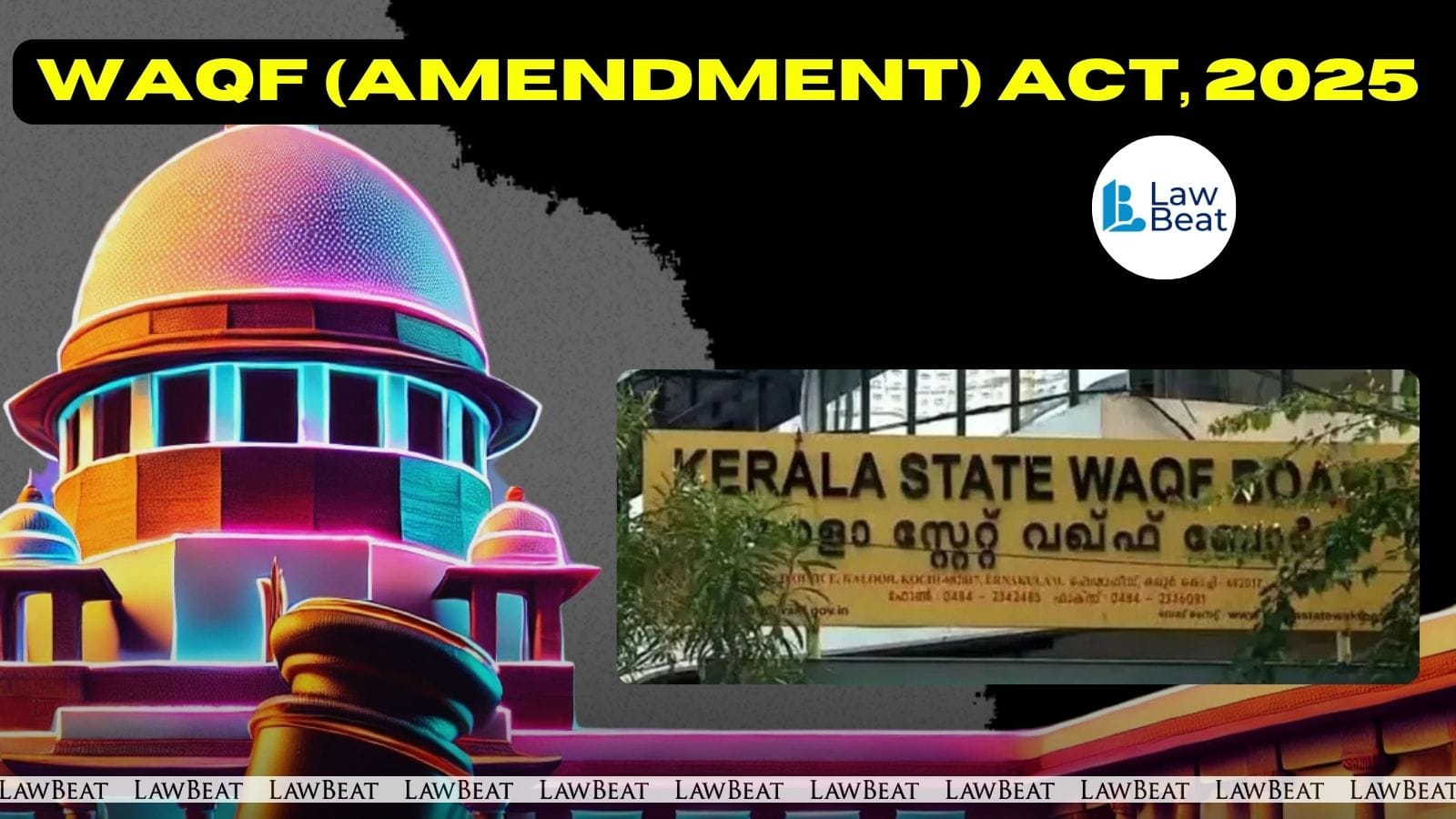Kerala Waqf Board Moves SC Against Waqf Amendment Act, Calls It 'Unconstitutional', Anti-Secular

The counter affidavit accuses the government of adopting a "pick and choose policy" to target certain religious communities while ignoring others that also manage religious properties
In a detailed preliminary counter affidavit filed before the Supreme Court, the Kerala State Waqf Board has strongly opposed the Waqf (Amendment) Act, 2025, describing the newly enacted law as “unconstitutional,” “discriminatory,” and “subversive of secularism.”
The Board warned that the amendments pose a serious threat to the autonomy of religious institutions, the federal structure of the Constitution, and fundamental rights guaranteed under Articles 14, 15, 25, 26, and 30.
The Board, represented by Advocate Subhash Chandran K.R., alleged that the Centre has unilaterally framed and passed the Waqf Amendment Act without adequate consultation with major stakeholders, particularly in Kerala, which it said has one of the best-performing Waqf Boards in the country.
The counter affidavit accuses the government of adopting a "pick and choose policy" to target certain religious communities while ignoring others that also manage religious properties.
Key Constitutional Objections Raised
The Kerala Waqf Board highlighted several major concerns:
- Infringement of Article 26 Rights: The inclusion of non-Muslim members in the State Waqf Boards and the Central Waqf Council was termed a direct violation of Article 26 of the Constitution, which provides religious denominations the right to manage their own religious affairs.
- Dilution of Board Autonomy: The transfer of crucial functions like Waqf surveys, dispute resolution, and management oversight to district collectors was described as a "centralizing overreach" that undermines the independence and religious character of Waqf governance.
- Omission of Fundamental Safeguards: The deletion of Sections 104, 107, and 108A of the existing Waqf Act, which respectively allowed interfaith waqf donations, exempted waqf litigation from limitation periods, and gave overriding effect to the Waqf Act over other laws, was criticized as a strategic dilution of waqf protection mechanisms.
- Violation of Islamic Principles: The Board objected to restrictions such as the requirement that only Muslims who have practiced Islam for at least five years can create waqf. It also opposed changes to concepts like “waqf-by-user” and “waqf-alal-aulad,” arguing these are rooted in centuries-old Islamic jurisprudence.
Procedural Irregularities and Stakeholder Exclusion
The Kerala State Waqf Board said it was never directly consulted by the present Joint Parliamentary Committee (JPC), which failed to visit Kerala during its deliberations. "This exclusion is a clear act of discrimination and violates the participatory federalism envisaged in the Constitution," the affidavit stated.
It added that unlike the 2013 JPC that undertook extensive consultations nationwide, including with Kerala’s stakeholders, the current JPC passed the amendments in haste, ignoring valuable inputs from major waqf-managed states.
Threat to Property and Resource Autonomy
Another critical concern raised was the amendment’s provisions giving control of waqf property income and resource utilization to the Central Government, rather than the local waqf boards. The Board emphasized that only the intentions of the waqif (donor) and religious doctrines should guide the use of waqf funds, not bureaucratic directives.
"The new law undermines centuries of tradition and judicial precedent by interfering with the management of waqf properties. It imposes arbitrary limitations on the community's ability to preserve and manage its religious and charitable institutions," the Board said.
Delay in Justice Delivery and Litigation Expansion
The Kerala Waqf Board also flagged the proposed removal of finality to Waqf Tribunal orders and the expansion of appeal rights to High Courts. It warned that this would cause a significant delay in resolving waqf-related disputes, adversely affecting day-to-day functioning and the protection of community assets.
Moreover, the Board argued that shifting survey responsibilities from specialized survey commissioners to overburdened district collectors would lead to inefficiencies and legal confusion, ultimately delaying the much-needed documentation and protection of waqf properties.
"At present, the provision that the order of the Waqf Tribunal shall be final in the proceedings to remove the Mutavalli under Section 64 and to supersede the Committee under Section 67. However, if this impugned Act is implemented, there will be a delay in the decision of the cases on the said issues," the affidavit read.
Broader Implications
The affidavit concluded by alleging that the Waqf (Amendment) Act, 2025, is not only ultra vires to the Constitution but also indicative of a broader agenda to interfere with and control minority institutions. “The provisions are aimed at regulating data collection and interference of non-Muslim persons in decision-making in a manner that is not applicable to any other religious denomination,” the Board said.
It is to be noted that on April 17, the Supreme Court had directed the Centre not to act upon the controversial provisions of the Act until further hearing, allowing State Governments and Waqf Boards to submit their responses. The Bench had recorded that Solicitor General (SG) Tushar Mehta, appearing for the Union of India, assured the Court that the Centre would file its preliminary response within 7 days.
The matter is expected to be heard next on May 5, 2025 at 2PM.
Case Title: In Re: The Waqf (Amendment) Act, 2025 (1)
